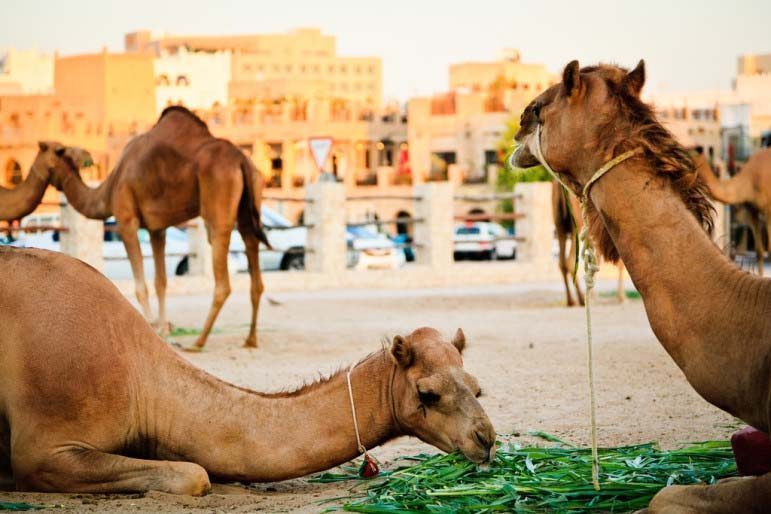
After discovering this week that three camels in Qatar have been linked to two human cases of the Middle East Respiratory Syndrome, veterinarians from the Ministry of Environment have begun visiting farms and grazing grounds to test animals for potential infection.
According to media reports, the ministry also plans to launch a national survey to assess the health of livestock and their vulnerability to MERS.
The increased scrutiny comes amid criticism from camel owners who say strict medical check-ups should be conducted on imported animals, especially those coming from Saudi Arabia, which has seen the highest incidence of MERS.
Qatar is currently home to some 67,000 camels, according to Al Sharq. The news that the animals could be carriers for a fairly new, unknown virus is concerning to many owners, according to the Peninsula, who quotes one as saying:
“Owners fear that not only their camels but also people could be inflected with the virus,” said (Musfir) Al Marri. But no medical checkups are conducted on camels entering the country, he said, adding there were no testing facilities at the border check-point.
WHO weighs in
The three camels with MERS were diagnosed this week after the Supreme Council of Health (SCH) commissioned researchers from the Erasmus Medical College in the Netherlands to test them. Eleven other camels in the barn, where two people who have contracted and since recovered from MERS, did not carry the virus.
Separately, the World Health Organization has said at least two others in Qatar who contracted MERS had come into repeated contact with different farm animals. Both patients were male expats who died earlier this month.
In an advisory issued yesterday about the findings, WHO stated:
“People at high risk of severe disease due to MERS-CoV should avoid close contact with animals when visiting farms or barn areas where the virus is known to be potentially circulating. For the general public, when visiting a farm or a barn, general hygiene measures, such as regular hand washing before and after touching animals, avoiding contact with sick animals, and following food hygiene practices, should be adhered to.”
The MOE also has advised people to avoid mixing with animals, especially those with chronic diseases such as diabetes and heart disease, because they are especially vulnerable to MERS.
Anyone with questions or concerns about MERS in Qatar can call the SCH’s 24/7 hotline: +974-6674-0951.
Thoughts?







